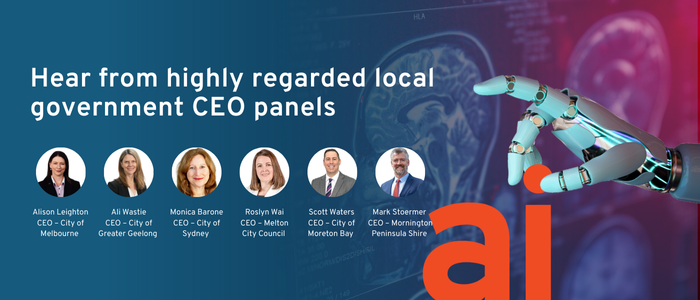Why Attend LG Innovate 2025: The National AI Summit for Local Government
With artificial intelligence reshaping the way governments operate, the 2025 LG Innovate National AI Summit is your opportunity to stay ahead of the curve.
Taking place on 3–4 September at Melbourne Town Hall, this two-day summit brings together over 150 local government CEOs, executives, tech leaders, and AI researchers to explore how AI is already transforming local councils — and what comes next.
What makes LG Innovate 2025 unmissable?
Real-World Learning from Local Government Leaders
Hear directly from pioneering councils as they share case studies, lessons learned, and live demonstrations of Generative AI in action. Discover how they’re redesigning services, rethinking workforce needs, and applying AI to better serve communities.
Global Insights and Collaboration
Gain international perspective from AI leaders in the UK, New Zealand, and across Australia, and be part of shaping the future of collaboration through the official launch of the ANZ Local Government AI Alliance.
CEO Panels and Candid Conversations
Join highly regarded CEO panel discussions, offering space for open, strategic conversations on AI investment, risks, and the leadership capabilities councils will need next.

Practical Guidance You Can Use Now
From AI governance and ROI frameworks to cyber drills and change management, you’ll take home tools and insights you can apply immediately.
New Venue. Bigger Network. More Momentum.
Set in the heart of the city at Melbourne Town Hall, this year’s summit is designed to foster connection, collaboration, and practical action.
Early Bird Offer Ends Soon
Register by
5pm Friday 18 July to secure your spot at a reduced early bird rate.
Spots are limited –
register now to be part of the national conversation on AI in local government.
Share this content





